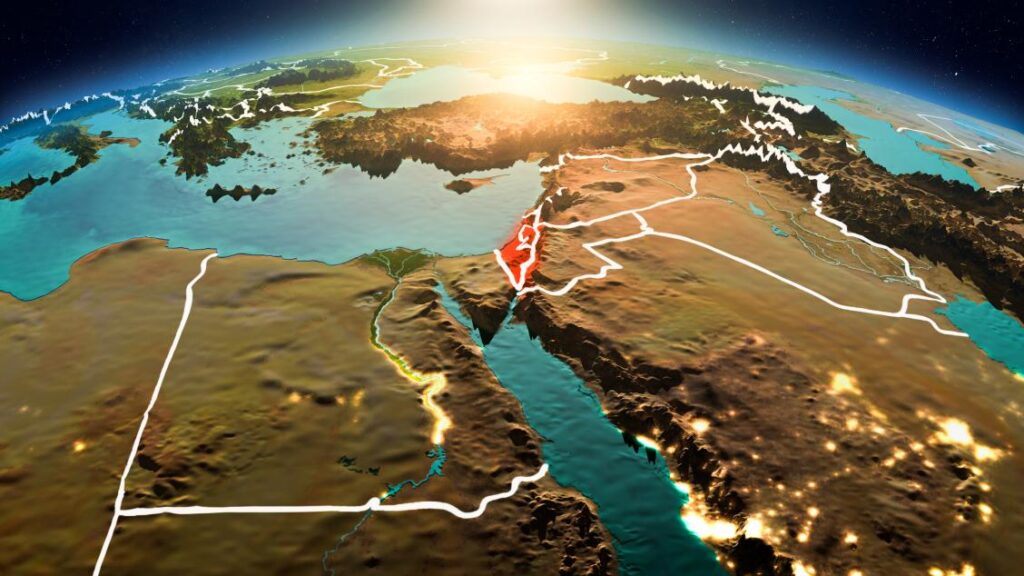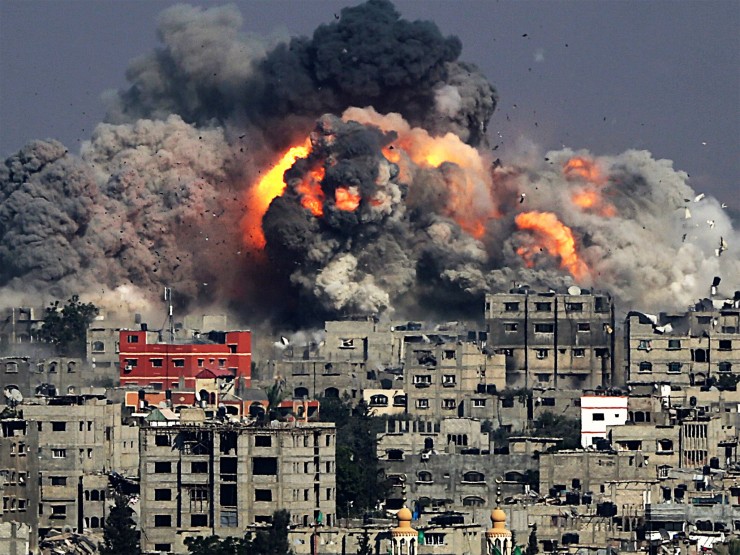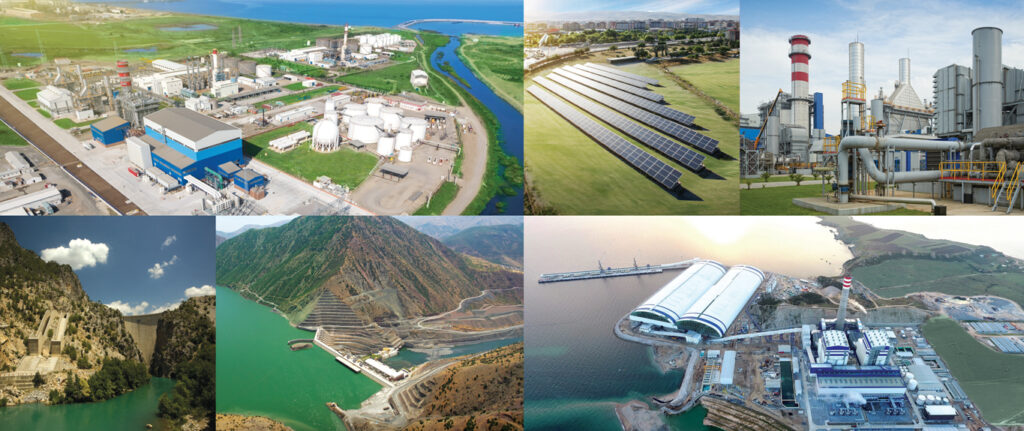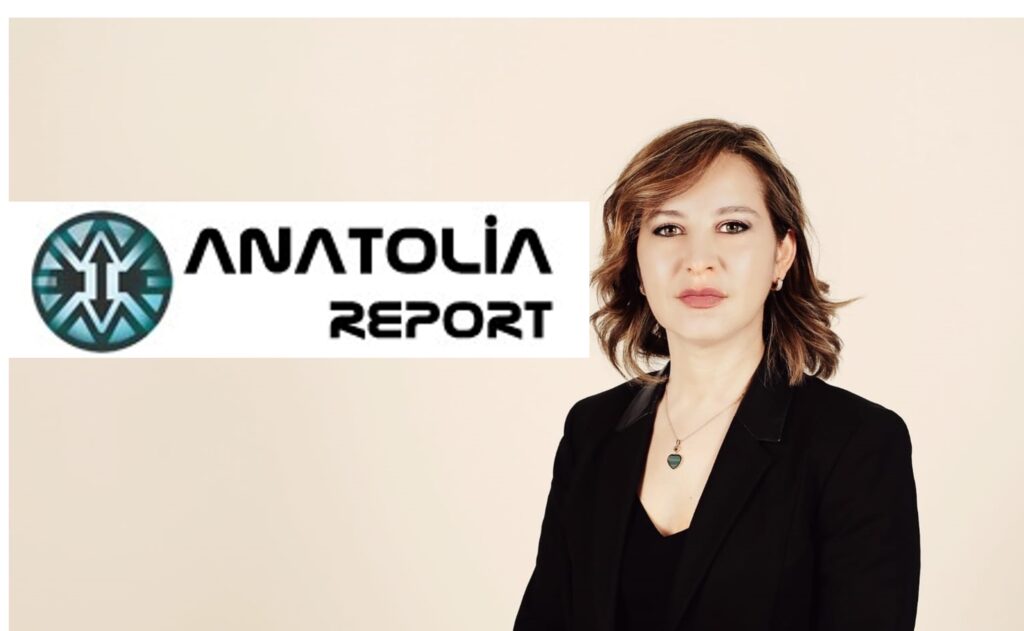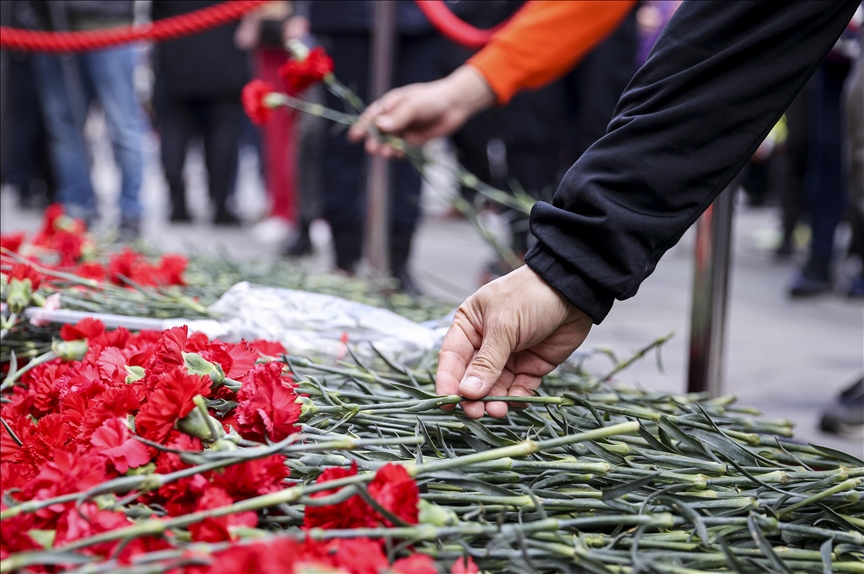Turkiye Rising Power in Africa: What are Turkiye’s expectations in Africa?
Turkiye Rising Power in Africa: What are Turkiye’s expectations in Africa?
ANATOLIA REPORT
May 2022
Africa is an vast continent where poorest nations of the world paradoxically live on the richest resources. The continent has vast deposits of oil, gas and minerals like cobalt, gold and diamond as well as agricultural products like palm oil, cacao, tea, coffee and vanilla, which are all necessary raw materials for industrial productions. Therefore, increasing demand for industrial supply creates extra pressure on Africa’s resources, especially as some Asian powers’ intense engagement with Africa started in the mid-1990s.
Accommodating more than 1.3 billion people, the continent is very dynamic in nature, and its market size expands parallel to the rise of its demographics and the purchasing power of its middle classes. In this regard, pejorative perception of Africa has become more positive in the recent period worldwide. Global companies seek new selling strategies in a way that best suits the African market; and companies like Google are investing more in the digitalisation of the continent. The continent is definitely seen as a new technology hub. In this vein, entering the market and selling more products to Africans are important objectives of global companies. As the African market attracts more attention, Africa gets more actors.
The face and the fate of African continent in the 21st century is changing fast and its network of foreign relations is becoming more complex as new actors are interacting with African countries. Besides the Western powers, nowadays, China, Japan, India and Russia along with Middle Eastern regional powers such as Qatar, the United Arab Emirates (UAE), Saudi Arabia, Iran and Israel are all seeking to create an area of influence over Africa’s sources, markets or strategic locations by offering low-cost loans, financial investments or finished products. Therefore, Africa has become the new star of summits and forums which are usually considered a necessary tool to boost interaction with Africa.
As a neighbouring country to the continent, Turkiye’s influence is not very far from Africa. In fact, Turkiye has been seeking to strengthen its influence in the continent through Africa tours, summits and forums. Expecting to play a more active role on the global stage, Turkiye sees important potential and opportunities for cooperation with Africa. Because of that, Turkiye has followed a certain Africa policy since 2005, and in the last decade, its presence in the continent has become more visible than ever. It has even hosted three Africa summits, the most recent of which was on 16-18 December 2021. Therefore, this paper examines Turkiye’s presence in the continent and dynamics of Turkiye-Africa interaction.
Since the late 1990s, Turkiye has sought to develop its relations with African countries through various initiatives such as humanitarian, economic, cultural, political, defense, and others. The need for Ankara to play a crucial role beyond its traditional sphere of influence pushed it to engage with African countries. Turkiye and African countries’ relations began to strengthen in the early 2000s when the Justice and Development Party (AKP) came to power. Due to the importance of Africa in its new foreign policy orientation, Turkiye declared 2005 as the Year of Africa. Since then, President Recep Tayyip Erdoğan has made 46 trips to 30 African countries, suggesting Africa’s strategic importance to Turkiye. African countries view Turkiye as a partner with no history of colonial exploitation on the continent and elsewhere, allowing Ankara to expand its influence through its soft power. Turkiye gained a foothold on the continent by promoting economic and social development in an environment of peace and stability and developing bilateral relations based on equal partnership and mutual benefit.
The recent visit of the Turkish president was accompanied by the signing of bilateral agreements and Memoranda of Understandings (MoUs) to strengthen ties with the leaders of the continent in the fields of security, trade, industry, energy, education, health, etc.
AN OVERVIEW OF TURKİYE’S AFRICA POLICY
Turkiye considers the recent four-day visit of President Erdoğan to the African continent as one of the essential steps in the realization of Ankara’s ambitions to make Turkiye a player in the international arena. The African states see this visit as a new opportunity to diversify their partners, attract investments, improve the business climate, and create new jobs. So much so that Western countries see this visit as an offensive to conquer new territories, aimed at realizing President Erdoğan’s neo-Ottoman ambitions. Turkiye first defined its policy towards Africa in 1998 in a plan known as the Africa Action Plan (Afrika Eylem Planı), developed by the Turkish Foreign Ministry headed by İsmail Cem. The plan aimed to develop economic relations with African countries to open new markets for Turkish companies. However, the economic and political crisis that Turkiye experienced delayed its implementation until 2002 when the AKP came to power. Since then, Ankara’s new political vision of becoming a major player in the international arena has focused on economic, political, and cultural ties with other countries outside its traditional sphere of influence. Therefore, Africa is one of the main targets of the new political vision because of its geographic proximity, historical and religious ties, economic opportunities, and, above all, the growing need and willingness to participate in any cooperation that might be beneficial. Turkiye has taken advantage of these opportunities to expand its influence on the continent in less than two decades.
Since President Erdoğan rose to power, Ankara has adopted a multidimensional strategy for the continent, in which various state and non-state bodies simultaneously coordinate diplomatic, economic, political, and cultural aspects. Today, Turkiye has 43 diplomatic missions on the African continent, with hundreds of Turkish companies operating in various sectors. Also, the Turkish Cooperation and Coordination Agency (TİKA), the Maarif Foundation, several schools, Yunus Emre cultural centers, and hundreds of NGOs involved in humanitarian activities are operating in several countries across the continent. Another dimension of this vision is the political discourse of President Erdoğan. His famous book published recently calls for the need for new and fairer world order. Slogans such as “The world is bigger than five” (Dünya beşten büyüktür) and “A fairer world is possible” (Daha adil bir dünya mümkün) aim to attract “third world” countries, especially those in Africa, to form a bloc against Western hegemony.
ERDOĞAN’S VISITS TO AFRICA
A warm welcome was extended to Turkish President Recep Tayyip Erdoğan and his delegation during his recent visits to Angola, Togo, and Nigeria. The visit was widely reported in the local media, which raised hopes in Turkiye for a closer partnership with African countries. Moreover, the streets of the capitals of the host countries were decorated with Turkish flags and billboards featuring Erdoğan next to his hosts and his slogan “Daha adil bir dünya mümkün.” President Erdoğan was accompanied by the first lady, Emine Erdoğan, Foreign Minister Mevlüt Çavuşoğlu, Energy and Natural Resources Minister Fatih Dönmez, Defense Minister Hulusi Akar, Trade Minister Mehmet Muş, and a large delegation of senior officials, bureaucrats, and businesspeople. The choice of President Erdoğan to pay an official visit to these countries is not random. Angola, located between Central and Southern Africa, is a strategic country that is a member of the Southern African Development Community (SADC), the Economic Community of Central African States (ECCAS), and the Conference for Peace and Security in the Great Lakes Region. The world’s fifth-largest diamond producer and Africa’s third-largest oil producer with an estimated production of over 1 million barrels per day, Angola ranks among the wealthiest countries in Africa in terms of natural resources. As Angola’s revenues depend on oil exports, falling oil prices have plunged Angola into an economic crisis. Since then, Angola has sought to diversify its economy to reduce its dependence on oil. The visit of Angolan President João Manuel Gonçalves Lourenço to Turkiye in July is an effort to attract investors and find new markets for Angolas mineral resources. After this visit, relations between Angola and Turkey developed rapidly. At the invitation of his Angolan counterpart, President Erdoğan visited Luanda, which was the first visit by a Turkish president to the country. Before Erdoğan’s visit, Turkish Airlines announced that it would start direct flights to Angola from October 13, which is an important step in developing relations between the two countries. At the same time, organizations such as Kızılay carried out humanitarian aid activities that strengthened the bond between the two countries. In this sense, during his visit, Erdoğan stated that his country intends to create a university hospital in Angola to improve the health system. Several agreements were signed at the end of this visit. Angola and Turkiye signed seven other cooperation agreements in mutual assistance in customs, agriculture, and education. The two states have set a goal to achieve $500 million in bilateral trade, which currently stands at $132 million. On the one hand, Angola hopes to attract Turkish investments, especially in infrastructure, energy, and mining, and export its crude oil to Turkiye.
On the other hand, Turkiye wants to export goods such as blue flour, textiles, furniture, and foodstuffs and thus help its companies win contracts for large projects, especially in construction and mining. The purchase of armoured vehicles and drones was also the subject of discussion between the two parties. An Angola-Turkiye business forum was organized on the occasion of the visit. In Togo, the second stage of Erdoğan’s visit, security issues and the fight against terrorism were at the center of discussions between the two countries. The issue of FETÖ has been the central topic in the relations between the two sides in recent years. After several diplomatic initiatives, Togo finally agreed to close the schools of the Gülenist movement and hand them over to the Maarif Foundation, a diplomatic victory for Ankara in its fight against FETÖ. In this regard, a “Host Country Agreement between the Maarif Foundation of Turkiye and the Republic of Togo” was signed during Erdoğan’s visit. The Turkish and Togolese foreign ministers also signed a “protocol on the exchange of land for diplomatic representations.” Although trade was not the focus of the exchanges between the two parties, the Togolese side insisted on a trade balance. Turkiye’s exports to Togo were $184 million between 2017 and 2020. At the same time, Togo’s exports were only $13 million. Togo hopes to attract Turkish investment to balance its trade. With the Port of Lomé, the Togolese authorities hope to make the country the center of Turkish trade in West Africa. Moreover, during this visit, a meeting on regional issues and bilateral cooperation took place between
President Erdoğan and three West African heads of state in the Togolese capital, Lomé. The meeting was attended by Togolese President Faure Gnassingbé, Burkina Faso President Roch Kaboré and Liberian President George Weah. At the end of the mini-summit, the four heads of state reaffirmed their determination to fight the scourge of terrorism without discriminating between terrorist organizations, including DAESH, FETÖ, Al-Qaeda, and Boko Haram. Ankara said it was ready to help these countries fight extremist groups by providing its intelligence expertise. The visit to Abuja, the Nigerian capital, was the last stop of President Erdoğan’s four-day tour in the African continent. Trade, the fight against terrorism, and defense were at the heart of the talks between the two parties. Nigeria faces threats from terrorist groups and armed bandits; therefore, it wants to develop military and defense cooperation with Turkiye. In this sense, Nigeria has signed a defense industry agreement with Turkiye that could open the door to export Turkish weapons, especially military drones and UAVs, to Nigeria. Moreover, the two countries signed eight bilateral agreements/MoUs in areas including energy, mining, and hydrocarbons. Nigeria, Africa’s number one oil producer with over 2 million barrels per day, exports oil and gas to Turkiye. According to the data declared by Turkish authorities, the volume of bilateral trade amounts to about $743 million. The countries hope to increase the bilateral trade volume to $2 billion. The FETÖ issue remains a bone of contention between Ankara and Abuja. Nigeria is one of the few West African countries that has not closed the schools of the Gulenist movement, which Ankara declared a terrorist organization after an attempted coup in July 2016. The organization is well established in Nigeria, with schools in various states and even a university in the Nigerian capital. Turkiye’s diplomatic efforts to have these schools closed have not yet been successful. To support these efforts, Turkiye has proceeded to open a Yunus Emre Cultural Center in Abuja and opened the newly renovated public secondary school in Wuse, Abuja, through TİKA. Also, as part of his efforts, President Erdoğan drew the attention of his Nigerian counterpart with these words: “This sensitivity that we have shown in the fight against terrorism, I hope, will be reciprocated by our Nigerian brothers, sisters, and counterparts.”
Aid for development and humanitarian affairs is also a highly essential pillar of Turkiye’s presence in the continent because there is a big development gap between Africa and the rest of the world. For example, access to clean water and electricity is still a big issue for millions of Africans. In this regard, Turkiye pays special attention to development projects in the continent. TIKA has coordination offices in 22 African countries and Turkish non-governmental civil society organisations (NGOs) are very active as development and humanitarian aid providers in Africa. These institutions fund school, madrasas, hospitals and clinics of different sizes.
Turkiye’s support for development projects is well-revealed by the case of Somalia. Despite internal conflicts and a deadly famine, Turkiye intervened in Somalia in 2011 with humanitarian concerns. Since then, Turkiye has completed a considerable number of development projects in Somalia. For instance, Turkiye’s largest military training centre and the largest embassy compound are located in Somalia’s war-torn capital, Mogadishu. Also, Turkish companies manage Mogadishu’s main sea and air ports, and 80% of Somalia government revenue is generated by these ports. Furthermore, Turkiye contributed 2.4 million dollars to Somalia’s IMF debt relief. Turkish armed forces train Somali national troops in Mogadishu and Turkiye. The Turkish and Somali Ministries of Health run the biggest hospital complex in the Horn of Africa together, the Erdoğan Training and Research Hospital.
However, Turkiye’s health diplomacy in the continent goes beyond Somalia. The Turkish and Sudanese Ministries of Health run a regional hospital complex together in Darfur, which was also constructed by TİKA. Mitiga Military Hospital in Libya’s capital, Tripoli, run by Turkish Armed Forces (TAF) is also another example of Turkiye’s support for the health sector in the continent.
The education sector has become a considerable component of Turkiye’s support for African youth development. Through the state-run Maarif Foundation, Turkiye runs 175 schools in 26 countries in the continent. In recent years, Turkiye has also increased scholarship opportunities for free higher education for African students. According to open sources, approximately 15000 African students have obtained full scholarships from the Turkish state since 1992. As an alternative to European higher education destinations, students from African countries prefer universities in Turkiye. According to date from the Presidency for Turks Abroad and Related Communities (YTB), 5259 African students benefitted from Turkish scholarship programmes between 2010 and 2019, while 1147 African students received scholarships in 2019 alone. (10) Similarly, Turkiye’s Yunus Emre Institute (YEE) has ten cultural centres in the continent offering language training courses and cultural exchange programmes.
Turkiye established the continental office of Anadolu Agency (AA) in Ethiopia’s capital, Addis Ababa. This move was an attempt to de-Westernise media dependency of Turkiye, since Turkish media usually imports news and images about Africa from Western media channels such as BBC, CNN, France 24, AFP and Reuters. Today, Turkish newsmakers located in Addis Ababa as well as Dakar, Nairobi, Johannesburg, Cape Town, Khartoum and Abuja produce media content distinctively. Additionally, AA organises training programmes for African journalists on journalism and online media that combine practice and theory.
Turkiye’s venture in the continent has extended to security and military cooperation as well. Libya and Somalia are the countries where Turkiye’s armed forces (TSK) implement training programmes for armed personnel while Turkiye’s troops joined peace-keeping missions in the Central African Republic and Mali. One of Turkiye’s greatest achievements in peace-building and security sector was building a military training centre called TURKSOM in Mogadishu for 50 million dollars in order to train Somalia’s national army alongside the African Union Mission in Somalia’s (AMISOM) peacekeeping forces fighting against al-Shabab. According to Turkiye’s ambassador to Mogadishu, so far, more than 15000 Somali military forces were trained by Turkish military personnel since the centre started operating in 2017. Moreover, Turkiye provides special commando training for some units in the Somali army in Isparta. In 2018, Turkiye announced its support of $5 million to the G-5 Sahel force comprised of five nations battling terrorism and trafficking in the Sahel region. Later, G5 Sahel and Turkiye signed a defence deal in Istanbul during Turkish International Defence Industry Fair.
During the COVID-19 pandemic, Turkiye continued supporting Africa by sending fleets of planes carrying medical items to various countries in the continent including South Africa, Somalia, Sudan, Uganda, Mozambique, Botswana, Namibia, Rwanda, Eswatini, Zambia, Angola and South Sudan. In this regard, Turkiye has sent fleets of cargo planes carrying masks, ventilators and other medical items required in order to combat the coronavirus. For local mask production, TIKA has sent sewing machines and fabrics to Mozambique and Eswatini. Despite restrictions related to the pandemic, several Turkish NGOs were also active in providing Covid-19 aid to African countries.
When we look at the last two decades, it seems that Turkiye’s new foreign policy towards Africa can be divided into two stages: In the first stage starting in 2005, Turkiye implemented African Initiative Policies to introduce itself to the continent. In the second stage, which started after 2014, it aimed to strengthen its institutions and partnership in Africa throughout Africa Partnership Policies. Just recently, Turkiye hosted its third Turkiye-Africa summit, which shaped Turkiye’s path in the continent from now onward.
As a strategic partner to the African Union since 2008, Turkiye’s approach to Africa is usually shaped by mutual declarations accepted in two Turkiye-Africa summits. Therefore, Turkiye is advancing in Africa according to the Joint Implementation Plans accepted and signed by both parties during the summits. There has been a strong correlation between Turkiye’s implementation practices and how summit declarations frame Turkiye’s contribution.
Indeed, throughout Republican era, Turkiye has only shown good performance in Africa under the rule of the AK Party, which came to power in 2002. However, Turkiye’s approach to Africa is by no means completely successful and without obstacles. There are considerable challenges facing Turkiye’s Africa policy posed by domestic and international issues. Firstly, Turkiye’s internal political and economic stability plays a crucial role in the continuation of Turkiye’s engagement with Africa as development and humanitarian aid are still Turkiye’s stronghold in the continent. Moreover, powers like France, Russia, China and the UAE challenge Turkiye’s strong presence in Africa for their strategic concerns.
Although there are challenges, the main indicator of Turkiye’s Africa policy is the interaction that has been developing reciprocally throughout the last decade. Although Turkiye’s presence in Africa is becoming more visible, African presence in Turkiye is also drawing attention nowadays. For instance, 37 African states have embassies in Ankara, and thousands of African students study in Turkiye. For work, education, trade and investment or tourism, Africans now prefer Turkiye as a destination. Somali, Sudanese, Egyptian, Tunisian, Senegalese and even Nigerian communities expand day by day in Turkiye. Thus, not only is Turkiye rising in Africa but Africa is also rising in Turkiye.
President Erdoğan, who made his 46th visit to the continent, is determined to make Turkiye a major player in Africa, a vision that goes beyond economic cooperation. The Turkish strategy is based on a bilateral, regional, continental, and global dimension integrating multiple aspects, including politics, economy, culture, and humanitarian efforts, described as “quite global” by some African diplomats. This recent tour of Erdoğan in Angola, Togo, and Nigeria aimed to strengthen political, economic, and cultural ties, an opportunity for Erdoğan to highlight the injustices of Western countries towards the African continent and reiterate his call for a more just world. This multidimensional strategy of Turkiye in Africa will attract more attention and debate in the coming years.


